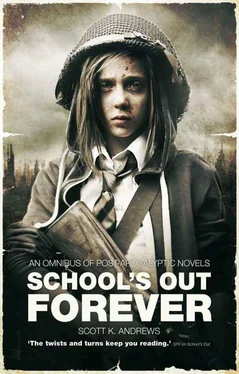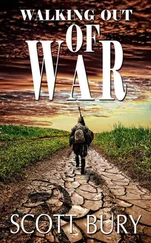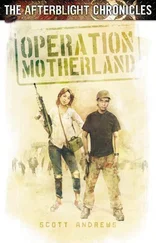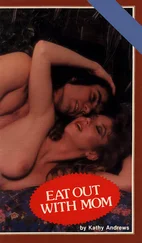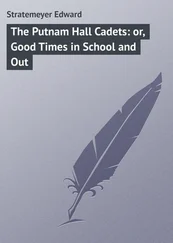The soldier stood upright and looked down at the two children. He didn’t say a word, just held out his arm, lowered his index finger, and rotated it to indicate that they should turn around and go back the way they’d come.
Caroline felt her chair move to the left, beginning to describe a circle, then the chair stopped at about 45 degrees and Rowles stepped back from the handles, grabbed the strap, brought his gun to bear, and fired at the soldier’s chest.
There was a dry click as the gun jammed and then another of those moments of stunned surprise as boy and man stood facing each other.
Caroline saw the doctor begin to stir on the floor behind the soldier.
The look of astonishment on the soldier’s face faded into amusement and he laughed at Rowles.
Oh dear, thought Caroline, allowing herself a tiny smile. That’s not wise.
Rowles launched himself at the soldier with a cry, using his gun as a club, beating the man’s chest and arms. The soldier lifted one big hand and swatted the gun aside, then lifted the boy off the ground in a bear hug, pinning his arms to his sides.
The doctor was up on all fours now, shaking his head to clear it. There was a loud scream of engines above as the jets made another pass, and a clatter of boots on the stairs at the far end of the corridor, as the soldiers returned.
“Little boy,” said the soldier in a thick Brooklyn accent. “You’re feisty, aintcha?”
Grasped tight, his feet off the ground, his arms useless, with no weapon to defend himself, Rowles looked puny and weak compared to the man who held him fast.
But Rowles was not beaten yet. With a feral snarl he bared his teeth, leaned forward, and bit hard into the man’s throat.
The soldier staggered back and released his hold on the boy. But Rowles did not fall to the floor. Instead, he wrapped his arms around the soldier’s neck and his legs around his waist, and continued biting, gnawing, crunching and savaging the man’s throat. He growled as he did so, like a wolf ripping out the throat of a helpless lamb.
Great fists raised and smashed the boy’s head again and again and Caroline winced at the soldier’s scream of pure agony and terror, but Rowles was limpet tight to the man, impossible to dislodge. The soldier took another step back and lost his footing, tumbling down and smashing his helmet against the floor. Rowles leaped up, pulled the knife from the soldier’s leather sheath, grasped it tightly in both hands and brought it down in a mighty arc, straight into his heart. The soldier’s legs kicked furiously, but his death throes gave the boy no pause.
Rowles pulled out the knife, cut the gun’s strap with one swift slice, freeing the M-16 from the soldier’s chest, then turned to the doctor, who had by now regained his feet.
“Quickly,” he said. The doctor reached forward, grabbed the handles of Caroline’s chair and spun her around, pulling her behind him as he backed into the lift.
The clatter of boots was deafening now. Helmets appeared, rising up the stairs at the far end of the corridor. Rowles, his back to Caroline, fired a short burst at the stairwell, which caused the helmets to vanish from view.
Then the boy turned to look at her. His eyes were pitch black, blood dripped from his face and chin, and when he spoke she could see strands of flesh stuck between his teeth.
She realised in that moment that she loved him more than she had ever loved anyone in her life.
“Run,” he said softly, his voice full of regret.
The doctor pressed the button and the doors of the lift began to slide closed. Caroline lifted her arm, reaching out her helpless fingers towards Rowles. Their eyes met and she knew, with absolute certainty, that she would never see him alive again.
Through the tiny crack as the doors closed she caught a glimpse of him turning away from her and running down the corridor. Then there was gunfire and screaming, and the soft buzz of the lift’s engine as the metal cage lowered her gently to the ground.
As her eyes filled with tears, she caught a faint hint of lilies on the air.

PART ONE

CHAPTER ONE
“WHEN IS IT acceptable to kill another human being?”
The question hangs there as Green waits for an answer. It takes a moment but eventually a girl three seats back raises her hand.
“Caitlin?”
“When they’re trying to kill you, Sir?”
We make them say Sir and Ma’am at St Mark’s. Old skool.
Green writes this on the whiteboard. I make a mental note to add whiteboard pens to our scavenging list; we’re running short.
“Anyone else?”
More hands go up now that someone else has taken the plunge. Green indicates them one by one, writing their contributions up.
“When someone’s trying to kill a friend of yours.”
“Or a family member.”
“When someone is a murderer.”
“Or a rapist.”
Green doesn’t react any differently to this suggestion, but I shift in my seat, uncomfortable both for him and for myself.
“Or a paedo.”
“In a battle, like a war or something.”
“As part of an initiation.”
Okay, we’d better keep an eye on that one.
“When they’re stealing your food or water.”
“If they try to take over your home.”
“For revenge.”
Green turns quickly back to the class. “Who said that? Was that you, Stone?”
The boy nods, unsure if he’s about to cop a bollocking.
“Revenge for what, though?” asks Green intently. No-one answers. The class seems confused. “You see, Stone has hit the heart of the matter. A lot of your suggestions — murderer, rapist, paedophile, thief — wouldn’t killing them just be an act of revenge? I mean, the crime’s already been committed. You’re not going to bring back the murder victim, un-rape someone, un-abuse a child. So why kill the criminal other than for revenge? And if it is revenge, is it a justifiable thing? Is killing for vengeance a crime, or a right?”
Another long pause, then a boy at the back, quite close to me, says: “But in those cases it isn’t just revenge, is it, Sir? Coz they might kill again, or rape or abuse or steal. So by killing them you’re protecting everybody.”
Green claps his hands, pleased. “Yes!” he says forcefully. “But what about prison? If you could lock the person away and thereby protect everyone? Remove the danger, and what purpose does killing the criminal achieve then other than vengeance? So again, is vengeance okay?”
“But there aren’t any prisons any more, Sir,” responds the boy, warming to the discussion. “And food and water and stuff are hard to get. So it’s a question of practicality and resources, isn’t it?”
I can tell Green is pleased. This boy is lively and engaged.
“So are we allowed to do things now, after The Cull, that we would have considered immoral beforehand?” demands Green.
“Yes,” says the boy firmly. “The world has changed. The morals they had before The Cull are a luxury we just can’t afford any more.”
“You don’t think morality is absolute?” responds Green, who once fired a clip’s worth of bullets into an unarmed man and has never displayed a hint of remorse. “That some things are just wrong, no matter what?”
“Do you, Sir?”
Jesus, this boy’s, what, fourteen? And before I can help myself I tut inwardly and think ‘kids these days.’ I smile ruefully at my own reaction. Am I getting old? I notice, as well, that he said ‘they.’ He was born ten years before The Cull, but already the people who ran the world then are another breed, as ancient and unknowable as the Romans. How quickly we forget.
Читать дальше
